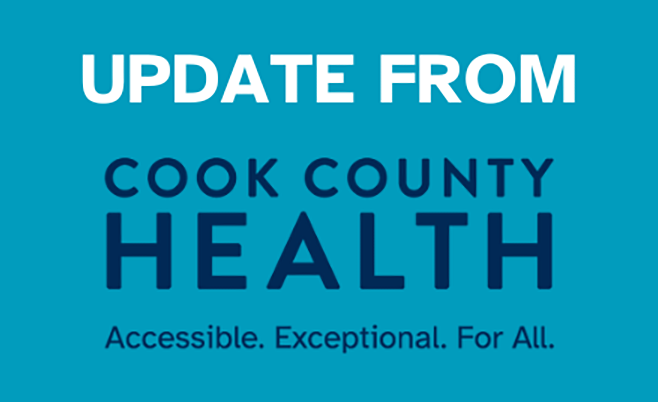Each year, more than half a million people go to emergency rooms for kidney stone problems according to the National Kidney Foundation. The majority of these patients undergo CT imaging incurring significant cost, radiation exposure, and other side effects. Emergency physicians at the Cook County Health say that for uncomplicated kidney stones, ultrasound first, followed by CT when needed, is a better option for initial diagnostic testing.
A kidney stone develops when soluble salts in the urine form into solid crystals. Stones can range in size from a grain of sand to as large as a ping pong ball. If they cause a blockage, they can cause extreme and rapid onset of pain. In most cases, kidney stones pass on their own, but medical procedures or surgery may be required for some kidney stones.
Symptoms include severe pain on either side of the lower back, vague pain or a stomach ache that doesn’t go away, blood in the urine, nausea or vomiting, fever and chills, and urine that smells bad or looks cloudy.
“The majority of kidney stones are uncomplicated and will pass spontaneously,” said Dr. John Bailitz, an emergency physician and CCH Emergency Ultrasound Division Director. However, treatment may be necessary depending on the size of the stone, what it is made of, and whether it is blocking the urinary tract.
According to a multicenter pragmatic trial published in the New England Journal of Medicine, that included the Cook County Health, bedside ultrasound performed by trained clinicians is an effective first line-screening test. “The ultrasound proved to be just as safe as CT, while reducing cost, length of stay, radiation exposure and ultimately long term cancer risk,” said Dr. Bailitz.
“The physician is able to perform and interpret the bedside ultrasound quickly while speaking with the patient real time about the results. Patients get a faster diagnosis and appreciate the one-on-one care,” said Dr. Bailitz.
Dr. Bailitz says patients shouldn’t be afraid to ask their ER doctor if an ultrasound would be a better choice.
“Bottom-line, CT costs about $1000 compared to about $100 for an ultrasound,” said Dr. Bailitz. “It just makes more sense to use ultrasound first for uncomplicated kidney stone patients.”

